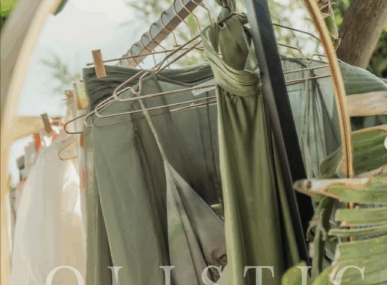As COVID-19 lockdowns forced Spaniards away from their offices, Pujol reflected on how her previous employer’s ethos had changed dramatically. “Due to the pandemic I had the opportunity to meditate about (the issue), so I learned about more sustainable options and slow fashion.”
Pujol’s research soon bore fruit. She learned that she could secure high-grade fabrics from leftover materials, discarded by other clothes manufacturers. Pujol also started to walk in the Catalonian mountains, foraging for plants that could produce vivid, all-natural colour dyes.
With crucial inputs at hand, Pujol started to produce her first outfits. Very soon, she realised that a one-woman operation like Hügel would not be able to turn out hundreds of different items from the very outset.
“When I first started with Hügel I wanted to create a huge collection, but I learned fast that it was not possible — not by myself,” she said. “I needed to accept the fact that I am here alone and there is only so much work that I can do.”
Fortunately for Pujol, she was not quite alone in establishing Hügel. “Right now [Hügel] is me, but I am really lucky to have my mum, who sews the prototypes, and my amazing friend and photographer Claudia.”



